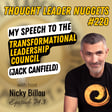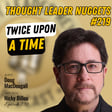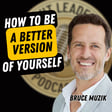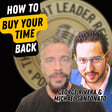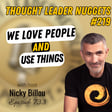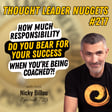
EP634: Rob DuBois - How To Get Really Good At Getting Kicked In The Nuts!!
“The most important investment you can make is in yourself. It’s not just about dollars—it’s about building a life that reflects your best self.”
Real talk: growth doesn’t come from sipping lattes in a comfy chair. It’s forged in the messiest, hardest moments when life punches you in the gut. This episode dives into the grit required to turn suffering into strength and pain into purpose. It’s not about avoiding hardship; it’s about learning to dance with it—and maybe even throw a few punches back. Packed with stories that’ll make you think, laugh, and maybe cringe, this conversation is your blueprint for thriving when the going gets tough.
Meet Rob Dubois, a guy who knows a thing or two about grit. From surviving a rough childhood to earning his stripes as a Navy SEAL, Rob’s journey is a masterclass in resilience. He doesn’t just talk the talk—he’s walked the hardest paths and come out stronger. In this episode, Rob spills his secrets on how embracing discomfort can transform you into a person you actually want to be. Spoiler alert: it’s not easy, but it’s worth it.
Rob Dubois is a former Navy SEAL, leadership coach, and founder of Impact Actual. He’s spent decades mastering the art of thriving in chaos and now helps others unlock their potential with a mix of wisdom, humor, and a no-nonsense approach to life. If you’re ready to stop running from pain and start growing from it, this episode’s for you.
Expert action steps:
1. Commit Fully to Growth: Make an “all-in” commitment as the first step to overcoming adversity and achieving transformation.
2. Trust the Process: The importance of surrendering to a structured process, even when it feels counterintuitive or challenging, is highlighted as a cornerstone of personal development.
3. Cultivate Self-Discipline: Stopping destructive behaviors like addiction and committing to habits aligned with integrity and health is presented as a critical action for long-term success.
Learn more about Rob at the Impact Actual Website: https://impactactual.com.
Visit eCircleAcademy.com and book a success call with Nicky to take your practice to the next level.
